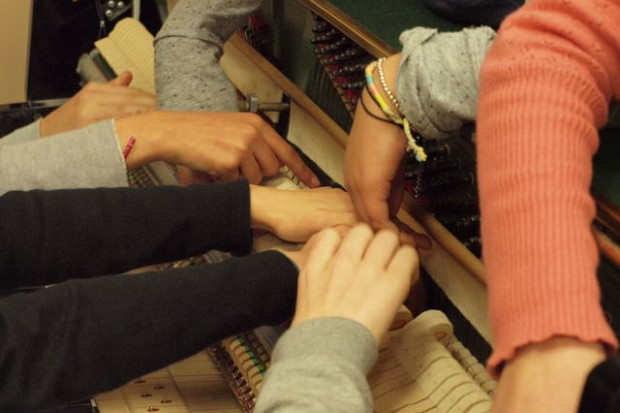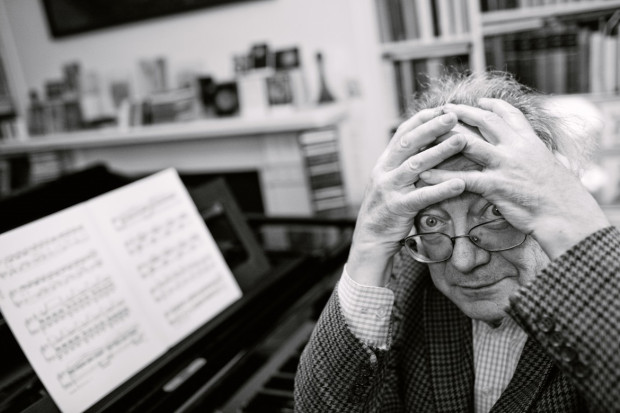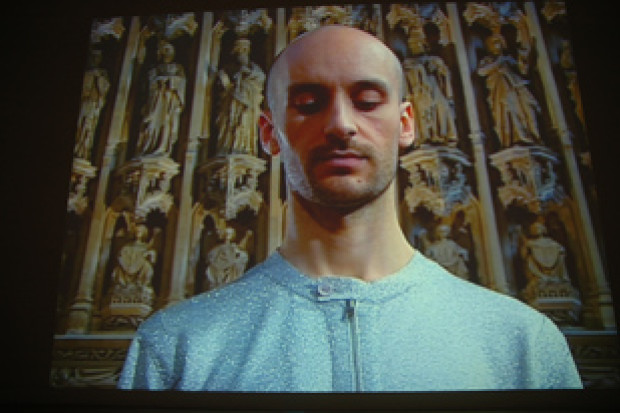Otomo Yoshihide / Sachiko M
Café Oto, London
9–11 March 2009
Otomo Yoshihide and Sachiko M’s three-day residency at Café Oto featured them in solo and duo performances, in addition to group improvisations alongside musicians such as Eddie Prévost, Christian Marclay, John Butcher and Evan Parker.
The diversity and dynamism of the arrangement meant that the most abiding impression of the three nights was of the native plasticity of free improvisation, a natural mobility clearly discernible in the residency’s mongrel combinations of musicians. Each collaboration, moreover, presented a drama of personality that evoked clearly and engagingly the social aspect of the practice of improvisation, and told of its anchorage in ideals of democracy and empowerment.
Otomo displayed particular versatility across the three nights. He opened the residency alone at a piano with a ring modulator and oscillator affixed, and cymbals strapped to its strings. He used the electronic devices to build great swirls of immersive noise, which were occasionally hushed and coloured with spectral detail, but more often than not were loud and reverberant. His treatment of the piano denatured the instrument, though the improvisation never really felt formally or texturally sophisticated. The rest of the first evening saw the Japanese musician in much more restrained mood on turntable and mixing desk, where his fragmented, flickering phrases of almost-indiscernible static, crackles and occasional low sustained tones, created a delicate ballet of noise. Similarly ghostly sounds came from Sachiko M on sampler and mixing board. Eddie Prévost expended great energy drawing twilight sounds from bowed gong and cymbals.
Otomo shape-shifted throughout the residency. When confronted on the second night with the much more centred, more voluminous and less abstract sounds of Christian Marclay’s turntables (which included snatches of trumpet, discernible yet decayed break beats, scratches and exhilarating descending glissandi), Otomo suddenly sprang into life with scratching and feedback of his own, even offering a steady rhythmic loop in the final stretch. He shifted once again on the third night, where he explored a detuned electric guitar’s noise-making properties via metal objects, e-bow and cymbal in his duet with John Butcher on soprano and tenor saxophones. He offered more clean-toned, lithe, yet still-gritty jazz guitar playing in the larger ensembles later on. It was intriguing to hear Otomo’s multimodal gifts across the three nights, noting how his general approach varied, but also the very distinctive ways he shaped line and timbre in response to different contexts.
Equally fascinating was the tension of style that characterised the group ensembles on the final night. Evan Parker on tenor and soprano saxophone, Tony Marsh on drums and John Edwards on bass focused on wild, maximalist improvisation. Their somewhat younger partners (Otomo, Sachiko and Butcher), though, gave more distilled explorations, such that a generational inflection was clear amongst the players. Everyone involved played with nuance and sensitivity (though Sachiko M got rather crowded out in the battle of notes), but the dichotomy was clear, and it infused the collaboration with a powerful friction. This led to some unevenly-matched group playing, though in the final set the players found some sustained and fertile common ground.
Sachiko M’s singular, unbending aesthetic deserves special mention. Through all the improvisations, regardless of company or contour, she ploughed a lonely furrow of short electronic beeps and static, and high impenetrable sine tones with occasional short fizzing rhythmic patterns of bleeping electronic signals. At first, her approach seemed wilfully obstinate, perverse even. But by the second night, as she and Otomo (performing as Filament) gave an almost impossibly denuded recital of whirs and clicks, the expressive musicality of her technique was clear. She was best heard in small-group or solo formats; her duet with John Butcher on the final night was a highlight of the residency. Butcher is amongst the most responsive of improvisers and here he sympathetically produced tensile multiphonics, grainy contrasts of timbre and bewildering patterns of brass-mediated percussion. His playing qualified the efforts of Sachiko M in a way unheard in the previous concerts. Otomo Yoshihide’s pliable musicality, though, dominated the residency.
Published on 1 June 2009
Stephen Graham is a lecturer in music at Goldsmiths, University of London. He blogs at www.robotsdancingalone.wordpress.com.














